
Case Studies
Dr Paul Rübig, Member of the European Parliament, Austria
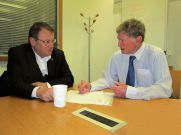 When Dr Paul Rübig came to Lancaster Languages for an intensive English language course, he wished to achieve three goals. Firstly he wanted to improve his English skills in general, and his pronunciation in particular; secondly he wanted to put those skills into practice in real-life situations that were pertinent to his work in the EU Parliament; and finally he wanted to learn about the people, culture and history of the local area.
When Dr Paul Rübig came to Lancaster Languages for an intensive English language course, he wished to achieve three goals. Firstly he wanted to improve his English skills in general, and his pronunciation in particular; secondly he wanted to put those skills into practice in real-life situations that were pertinent to his work in the EU Parliament; and finally he wanted to learn about the people, culture and history of the local area.
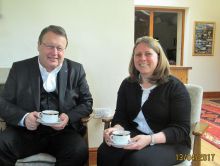
On receiving Dr Rübig's Needs Analysis, we began planning his bespoke, one-to-one programme. The main language components were 'Language of Presentations', 'Language of Meetings' and 'Pronunciation'. In the first session of the course, we identified a few problems with pronunciation, grammar and vocabulary, and set some targets accordingly. We gave Dr Rübig graded exercises and encouraged him to return to and practise the target points regularly in order to resolve the difficulties
For the pronunciation module, we helped Dr Rübig compose a set of sentences related to his work, which included the pronunciation targets. These sentences were used to create a personalised pronunciation exercise which was recorded as an audio file, and which Dr Rübig could then listen to, to practise and perfect his pronunciation in a context that was highly relevant.
In order to help Dr Rübig attain his second goal, five meetings were arranged with leading researchers at Lancaster University:
- David Hutchison, Distinguished Professor of Telecommunication Networks
- Professor Phil Barker, Director of Lancaster Environment Centre
- Dr Nick Burd, Director of China Catalyst Programme
- Dr Amit Chopra, Sociotechnical Systems
- Plamen Angelov, Professor of Data Science
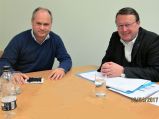
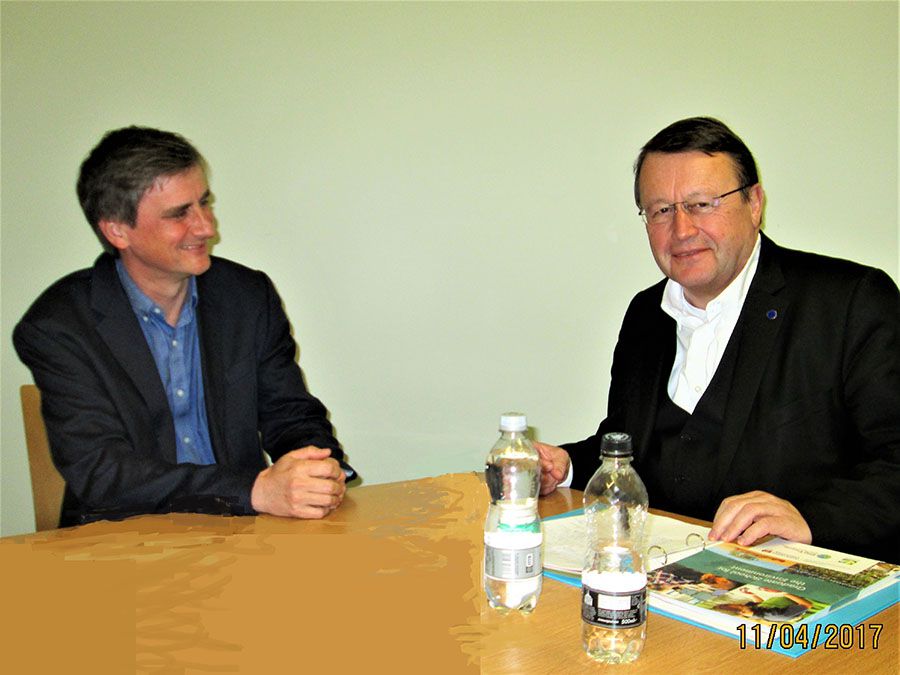
In advance of the meetings, the module on 'Language of Meetings' was completed and afterwards the language points which had arisen were reviewed.
Through these meetings, in addition to practising his English, Dr Rübig was also able to further develop his knowledge in key areas of science and technology relating to his work in the European Parliament.
To realise Dr Rübig's third goal - getting to know the people, culture and history of the local area - a programme of excursions was arranged. This included trips to Lancaster Market, Lancaster Castle, the city museum, the seaside at Morecambe and the Unesco World Heritage site, the Lake District. Dr Rübig thoroughly enjoyed all aspects of these visits and he took every opportunity to engage with local people. No trip to the UK would be complete without at least one visit to a pub and on the last day, we enjoyed a celebratory meal at a traditional country pub, The Fleece at Dolphinholme.
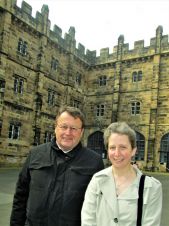
At the end of his course, Dr Rübig commented: “The English course has enabled me to have high-level communication for my work in the EU Parliament using better English.” In the course evaluation, he stated that the most useful language element of the course was the pronunciation module and for the course overall, he wrote,
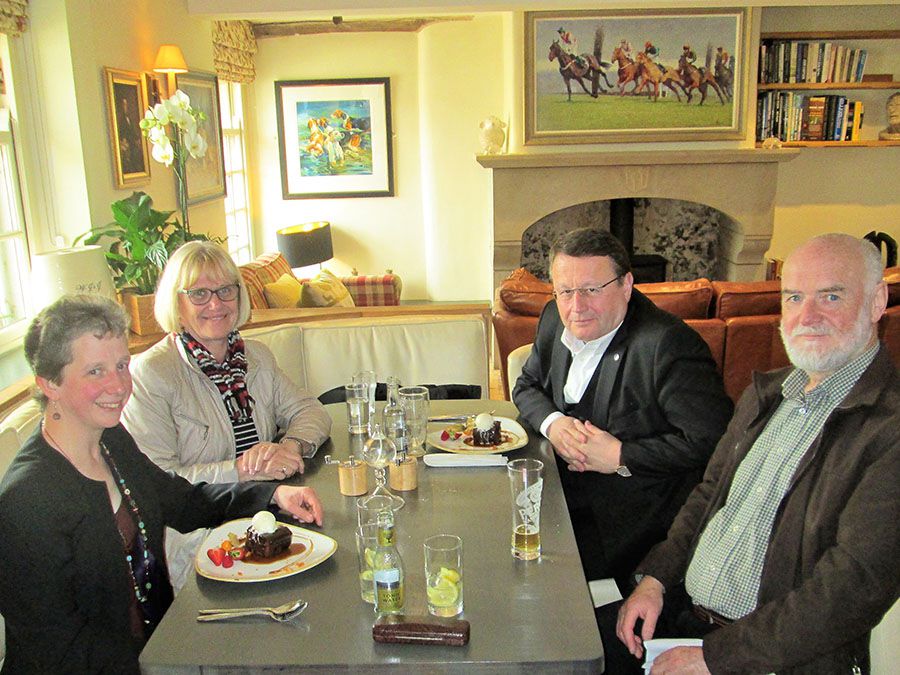
" Sprachschule auf höchstem Niveau mit wissenschaftlichen Hintergrund. Sehr zu empfehlen."
"Language school of the highest standard with strong academic background. Highly recommended."
The only improvement he could suggest for the whole course was better weather!
Yoichi Morita – Business Development Manager, Japan
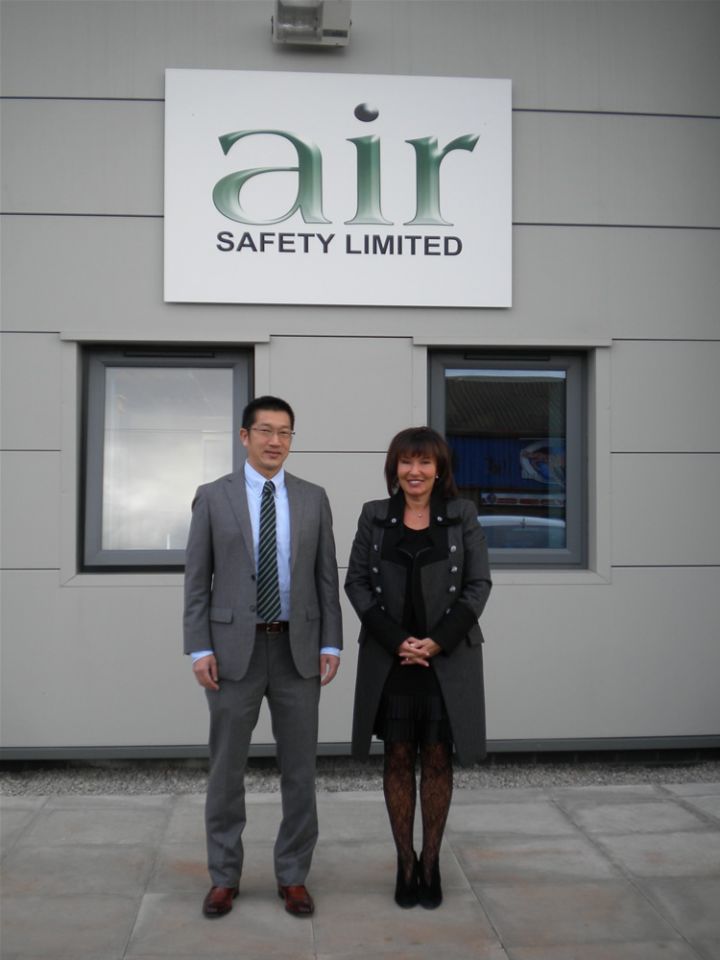 A local manufacturing company, Fenchurch Environmental Group Ltd, approached us to request a two-week Business English course for their recently appointed Japanese Business Development Manager. In addition to the information obtained from the Japanese employee himself via the Needs Analysis, we also met with the Director of Operations to ascertain her priorities in terms of course objectives for the Japanese manager. She mentioned that he would need to familiarise himself not only with UK business culture, but also Italian, because he would subsequently be required to work closely with their colleagues in Italy.
A local manufacturing company, Fenchurch Environmental Group Ltd, approached us to request a two-week Business English course for their recently appointed Japanese Business Development Manager. In addition to the information obtained from the Japanese employee himself via the Needs Analysis, we also met with the Director of Operations to ascertain her priorities in terms of course objectives for the Japanese manager. She mentioned that he would need to familiarise himself not only with UK business culture, but also Italian, because he would subsequently be required to work closely with their colleagues in Italy.
After collating all this information, we produced a course outline detailing the different modules to be covered, which included language for business meetings, giving presentations, correspondence, telephone skills and cross-cultural communication.
On his arrival, we discovered that there were some major pronunciation issues and so the proposed programme was modified slightly in order to include a pronunciation module. For the presentations module, we helped Yoichi prepare and practise a presentation relating to his field of work, and a few days later he had the opportunity to actually deliver it to an invited audience, and receive feedback. We organised several visits to the company where he had meetings with his new colleagues, after which he could review and debrief with the accompanying teacher, back in the classroom. Finally we selected two teachers with experience of living and working in Japan and Italy, to teach modules on Japanese/UK and Italian/UK differences in business culture.
Yoichi stayed with one of our host families and found that to be most beneficial to his language development. He was keen to experience British culture first-hand, and told us that he was interested in sheepdogs and rugby. So one day, for some light relief, we visited a local farmer who is a former champion sheepdog trialler; and on another evening we went with him to a local pub to watch a rugby match on a big screen. Yoichi concluded that all these different parts of the course combined to make it a most memorable, rewarding and fruitful fortnight.
Véronique Lucas – Agricultural Journalist and Sociologist, France
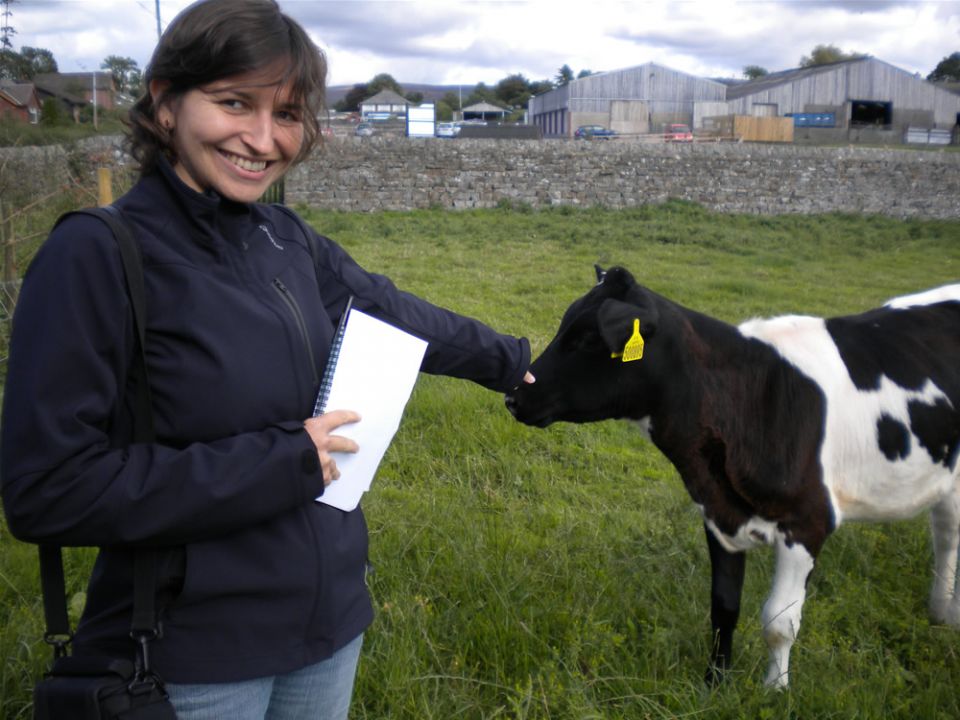 Véronique came to Lancaster Languages for a two-week intensive English course. In the Needs Analysis she stated that she was a journalist and sociologist whose specialist field was agriculture. Her writing and research dealt with socio-economic matters related to farming and sustainable agriculture.
Véronique came to Lancaster Languages for a two-week intensive English course. In the Needs Analysis she stated that she was a journalist and sociologist whose specialist field was agriculture. Her writing and research dealt with socio-economic matters related to farming and sustainable agriculture.
Her goals were to improve her spoken English and also her academic reading and writing skills.
We planned a course based on the information she had given us, focusing on the particular skills and topics she had requested. In addition to the classroom lessons, we also arranged several work-related visits: two farm visits, an appointment with a representative of the National Union of Farmers, and a meeting with a journalist at the Farmers Guardian newspaper.
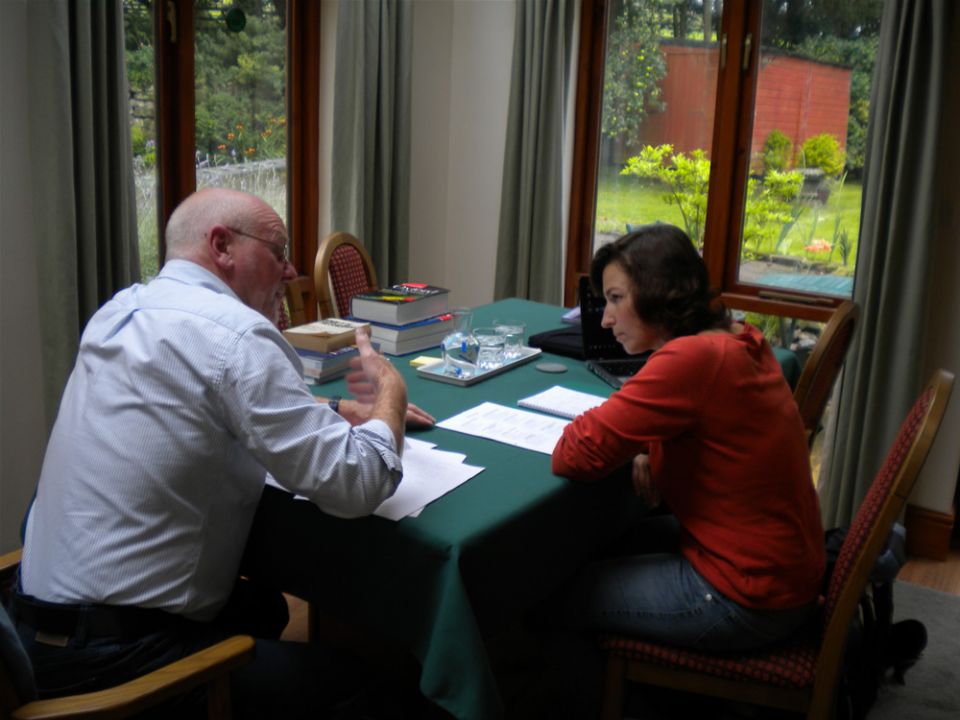 These visits gave Véronique some rich and varied insights into farming and agriculture in the UK, and provided her with the opportunity to practise using the language in real-life situations, specific to her areas of expertise. As the teachers accompanied Véronique on the visits, they were available to help with the language if necessary and later, back in the classroom, review each visit in order to maximise the learning outcomes for her.
These visits gave Véronique some rich and varied insights into farming and agriculture in the UK, and provided her with the opportunity to practise using the language in real-life situations, specific to her areas of expertise. As the teachers accompanied Véronique on the visits, they were available to help with the language if necessary and later, back in the classroom, review each visit in order to maximise the learning outcomes for her.
The stay with the host family was also found to be a most enjoyable and valuable experience.
 English
English
 Suomalainen
Suomalainen õĖŁÕøĮ
õĖŁÕøĮ Fran├¦ais
Fran├¦ais Deutsch
Deutsch Italiano
Italiano µŚźµ£¼Ķ¬×
µŚźµ£¼Ķ¬× Polski
Polski






